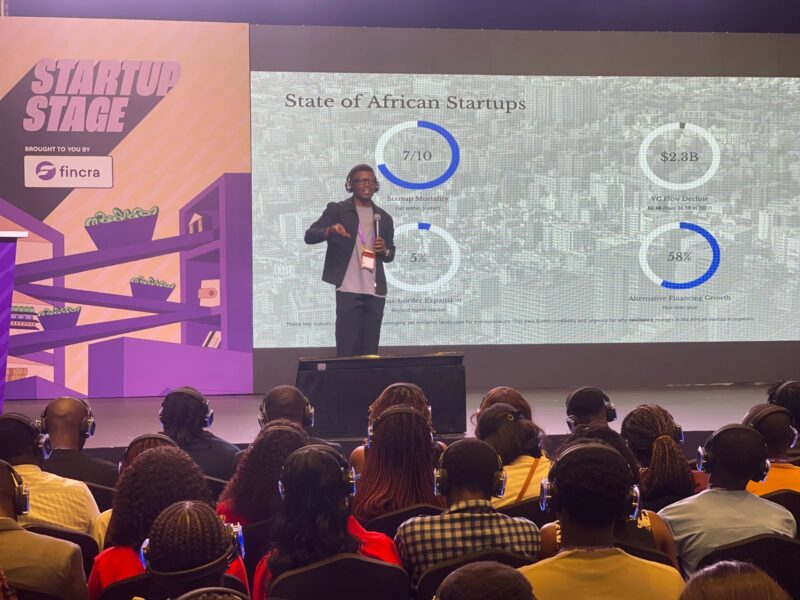African startups must shift from hustle-driven operations to building resilient infrastructure if they want to survive volatile markets and scale sustainably. Olumide Okubadejo, Head of Product at Sabi, delivered this at Moonshot by TechCabal on October 15, warning that while hustle can launch a business, only robust systems can sustain it through economic shocks and market fragmentation.
“At the beginning, you have to have the hustle system. The hustle by, you know, there’s no start time. There’s no end time. Let’s work in the office all night,” Okubadejo said. “After that, you need to start thinking about governance structures. You need to start thinking about different kinds of structures that allow you to go beyond scrappy.”
The stakes are high. Estimates suggest that 70-80% of African startups fail within their first five years, with infrastructure challenges cited as a primary cause. Funding to African startups dropped 22.73% to $2.21 billion in 2024 from $2.86 billion the previous year, making the ability to build systems that withstand shocks critical for survival.
Okubadejo shared how Sabi navigated this transition, revealing an unexpected insight about infrastructure challenges. “We started as a B2B marketplace. And we were fairly successful in that market understanding, how to platform trade,” he explained. “And we realised quickly that it was an infrastructure problem. You need the right infrastructure. You need logistics. You need finance. Everything has to come in place in the right way for your product to actually work.”
The company’s pivot illustrates a critical lesson: infrastructure problems can become infrastructure opportunities. “We then realised that we have all of this knowledge and that we can transfer this knowledge into something else which is digital infrastructure,” Okubadejo said. Sabi transformed from a marketplace into a supply chain traceability and compliance platform, now serving markets across Zimbabwe, South Africa, and enabling African goods to reach Western markets by meeting stringent compliance standards.
“When you see fragmentation in a market, understand there’s an infrastructure play there,” Okubadejo emphasised, challenging founders to view Africa’s notorious market fragmentation not as an obstacle but as an opportunity to build critical infrastructure.
He warned founders against remaining in hustle mode too long. “A lot of times, failure can be attributed to the fact that people don’t actually leave that hustle rate. They still want to stay scrappy when you’re running. You have maybe 5,000 clients. You have to sell. They still want to stay scrappy when their product is expanding beyond states and beyond borders.”
Okubadejo’s advice to African business leaders is clear: prioritize adaptable systems and long-term sustainability over quick wins. “You need to be able to adapt. A company that would go beyond hustle, you need to be able to wake up and look at your business critically and say, oh, I need to change this. I need to adapt. My strategy needs to change,” he urged.
He also highlighted the importance of compliance as a competitive advantage rather than a burden. “Compliance itself becomes your boots,” Okubadejo said. “You’re thinking about compliance from the get-go means that you can readily expand beyond the borders when you’re ready and when you give it time.”
On capital strategy, he advised diversification beyond traditional venture capital funding. “You cannot depend on venture capitals at this point. You need to rethink that dynamic of raising money. Debt, for instance, is becoming something that is very big right now,” noting the emergence of alternative financing including inventory financing and working capital loans.
While hustle remains essential for getting started, investing in resilient infrastructure is what separates businesses that merely survive from those that scale and thrive across the continent’s diverse markets. As Okubadejo put it: “We can’t just build products. We need to think. When we think in terms of resilience, we also need to think in terms of the infrastructure.”








